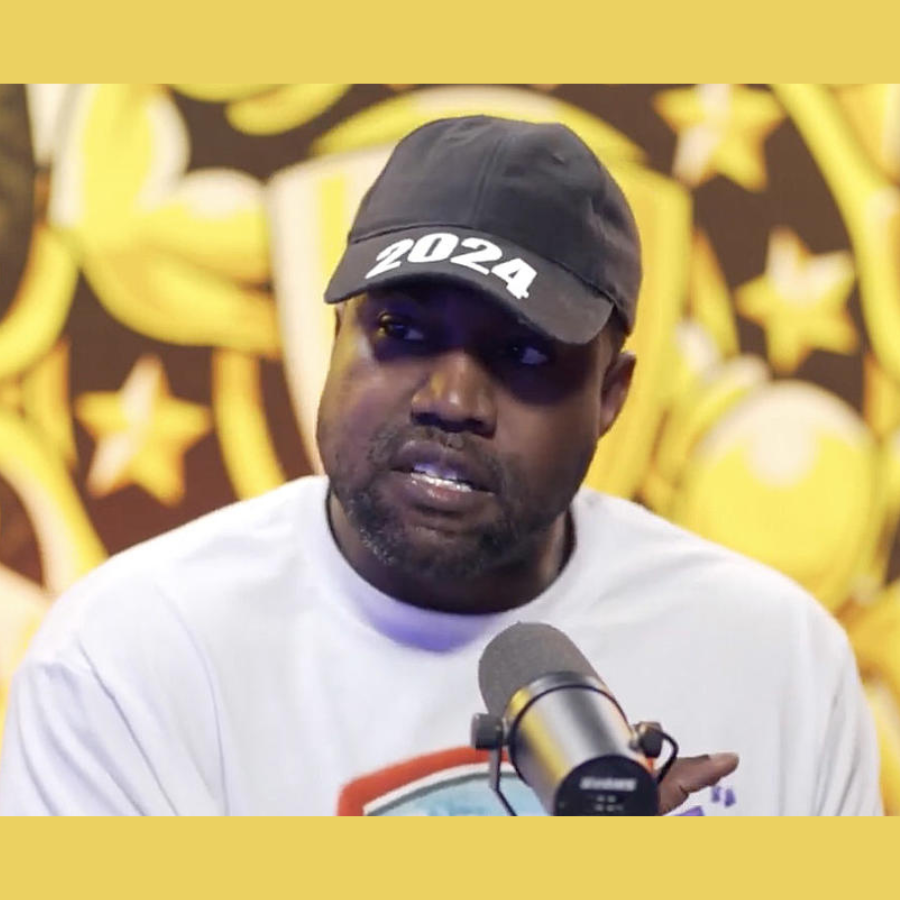Kanye West has a Kanye West problem.
I’m not interested in speculating as to whether his behavior is the result of a mental health issue or a PR stunt. What can be explored is what we’re seeing in real-time: Kanye antagonizing various communities, then playing the victim role when accountability takes center stage.
No, Kanye isn’t a casualty of free speech. As I type this, he has grabbed headlines in his latest effort to harass Roxie Washington, the mother of George Floyd’s daughter, via social media. Around the same time, he posted a picture of Emmett Till’s mutilated body on his Instagram feed.
If anything, Kanye has not recognized his right to be silent. He has refused to create space for himself to introspect, despite how sorely it’s needed.
Kanye has zeroed in on Floyd as he continues to cast aspersions about how he was murdered. Even though we all have access to the video. Even though his killers have been convicted in state and federal courts. But since Kanye has recently branded himself as a free-speech crusader, pushback is dismissed as “intolerance” of the truth. Even when his truth is not the truth.
But this Kanye didn’t come out of nowhere.
Kanye’s Pattern of Targeting Black Women
His first target was Vogue fashion editor Gabriella Karefa-Johnson, who criticized him for the “White Lives Matter” shirts showcased at his Yeezy shows.
“There is no excuse, there is no art here,” she wrote on social media. “I do think if you asked Kanye, he’d say there was art, and revolution, and all of the things in that T-shirt. There isn’t.”
The seemingly-tame comment led Kanye to question Karefa-Johnson’s position in the industry, dismissing the first Black woman to style a Vogue cover as “not a fashion person.” He also included a picture of the editor and insinuated Vogue editor-in-chief Anna Wintour hated what she was wearing. In turn, Karefa-Johnson became the target of endless fat shaming and bullying.
But Karefa-Johnson wasn’t only the person to express her displeasure and disappointment in Kanye: Vanity Fair reported that Jaden Smith walked out of his event and Edward Enninful, the British Vogue’s editor-in-chief, called the stunt “insensitive.” Hailey Beiber and Gigi Hadid directly called out Kanye on social media. It was not missed by many that the only person Kanye directly attacked was Karefa-Johnson, a Black woman.
After the abuse Karefa-Johnson received, Kanye then targeted the Jewish community with hackneyed claims that they have a foothold in media and banking. He doubled down to declare that his loss of brand deals was a Jewish conspiracy. He has yet to consider that it was the result of his harmful, insulting rhetoric.
Clearly, antisemitism isn’t an acceptable form of discrimination. But the way in which Karefa-Johnson’s abuse has been overlooked in the wake of his more recent comments bothers me. As people express their outrage over Kanye’s ongoing antisemitism, others ignore his acts of misogynoir. Sadly, this only plays into a trope that intentionally pits Black people against Jewish people while upholding White supremacy.
Like Kanye’s mental health, the anti-Black racism vs antisemitism debate is not something I’m interested in partaking in. Black women deserve advocating, but I could not imagine any circumstances in which it would be at Jewish people’s expense.
As Eugene Robinson writes in The Washington Post, “Antisemitism is a scourge, no matter how a person arrives at it. Analyzing West’s trajectory or the meaning of his descent won’t provide a definitive explanation of him, or of anyone else. The only thing this endless analysis achieves is to repeat and rebroadcast this bile.”
Recommended Resources:
Misogynoir Transformed: Black Women’s Digital Resistance by Moya Bailey
Girlhood Interrupted: The Erasure of Black Girls’ Childhood (study) by Georgetown University’s School of Law
Their Eyes Were Watching God by Zora Neale Hurston
Bridging the Gap Between Blacks and Jews in America in the Daily Beast


